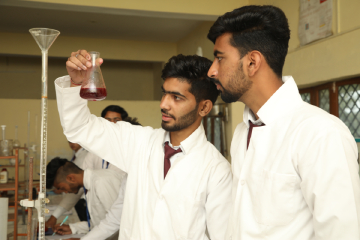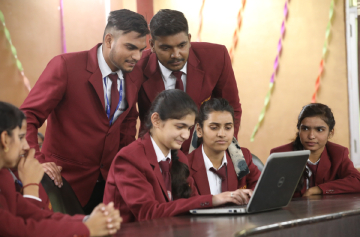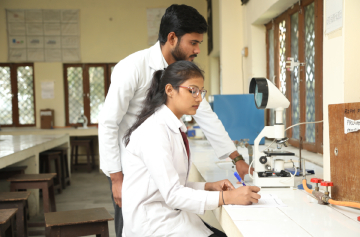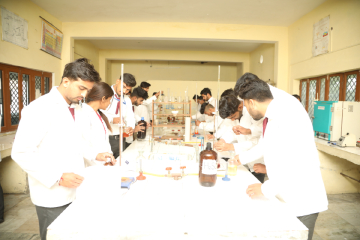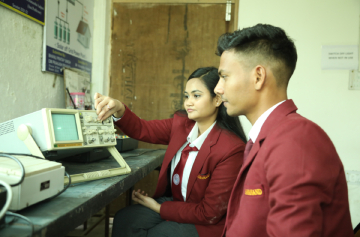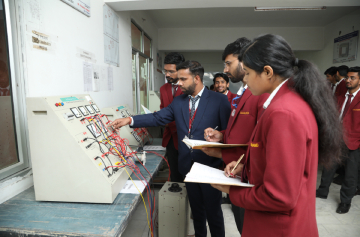Polytechnic (Electronics Engineering)
Electronics engineering is an engineering discipline where non-linear and active electrical components such as electron tubes, and semiconductor devices, especially transistors, diodes and integrated circuits, are utilized to design electronic circuits, devices and systems, typically also including passive electrical components and based on printed circuit boards.
The focus in this discipline is on understanding electronic networks and devices, electric magnetic fields, computer fundamentals, communication and control systems. The range of knowledge gained during studies is amazingly broad and versatile. Electronics Engineering uses the scientific knowledge of the behavior and effects of electronics to develop components, devices, systems and equipment. It deals with recent trends in communication technology via wire/wireless networks, circuit designs & Micro controllers.
Vision:
Committed to develop engineers that always focus on future.
Mission:
Imparting quality education & practical knowledge.
Developing the attitude that always focus on future need of the industry and society.
Programme Educational Objectives (PEOs):
PEO 1- Cater the needs of Indian as well as multinational industries.
PEO 2- Being competent with sound technical background.
PEO 3- Analyzing situation & understanding industrial problems, analysis & find the viable & feasible solution.
PEO 4- Make a successful career in industry/manufacturing sector.
PEO 5- Go for higher studies.
PEO 6- Must follow the never-ending process of “learning” throughout the life.
PEO 7- Being competent & fluent to enhance the effectiveness of communication.
PEO 8- Always follow ethics of the profession with the skills.
Programme Outcomes (POs):
PO 1- Basic and Discipline specific knowledge: Apply knowledge of basic mathematics, science and engineering fundamentals and engineering specialization to solve the engineering problems.
PO 2- Problem analysis: Identify and analyse well-defined engineering problems using codified standard methods.
PO 3- Design/ development of solutions: Design solutions for well-defined technical problems and assist with the design of systems components or processes to meet specified needs.
PO 4- Engineering Tools, Experimentation and Testing: Apply modern engineering tools and appropriate technique to conduct standard tests and measurements.
PO 5- Engineering practices for society, sustainability and environment: Apply appropriate technology in context of society, sustainability, environment and ethical practices.
PO 6- Project Management: Use engineering management principles individually, as a team member or a leader to manage projects and effectively communicate about well-defined engineering activities.
PO 7- Life-long learning: Ability to analyse individual needs and engage in updating in the context of technological changes.
